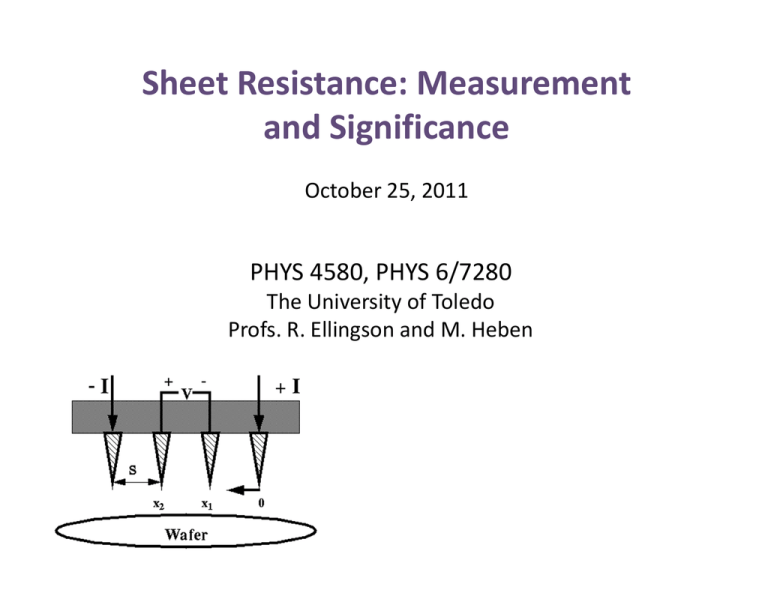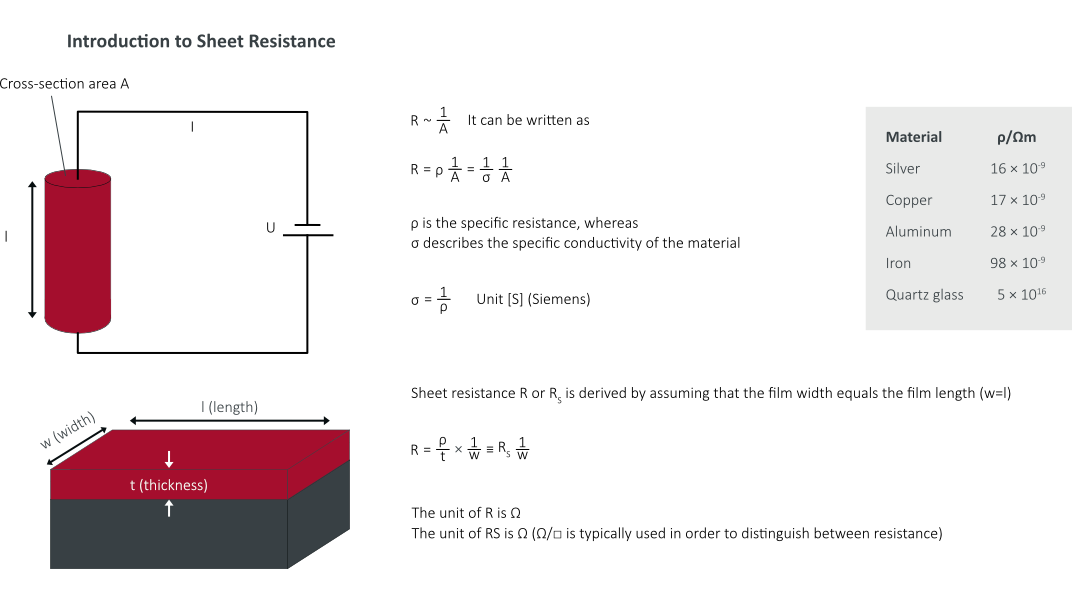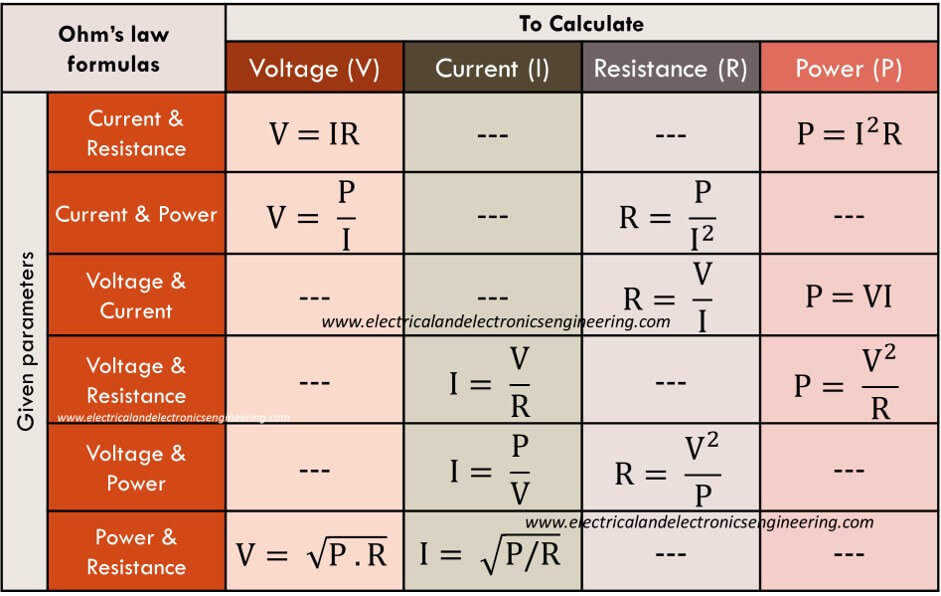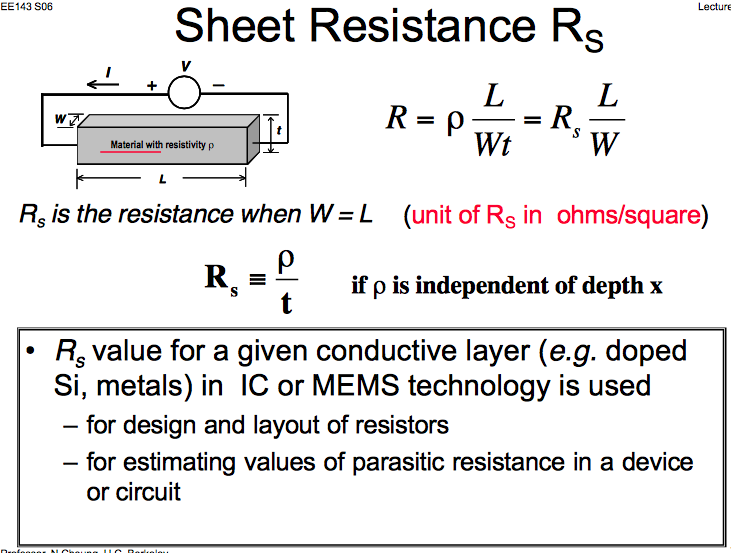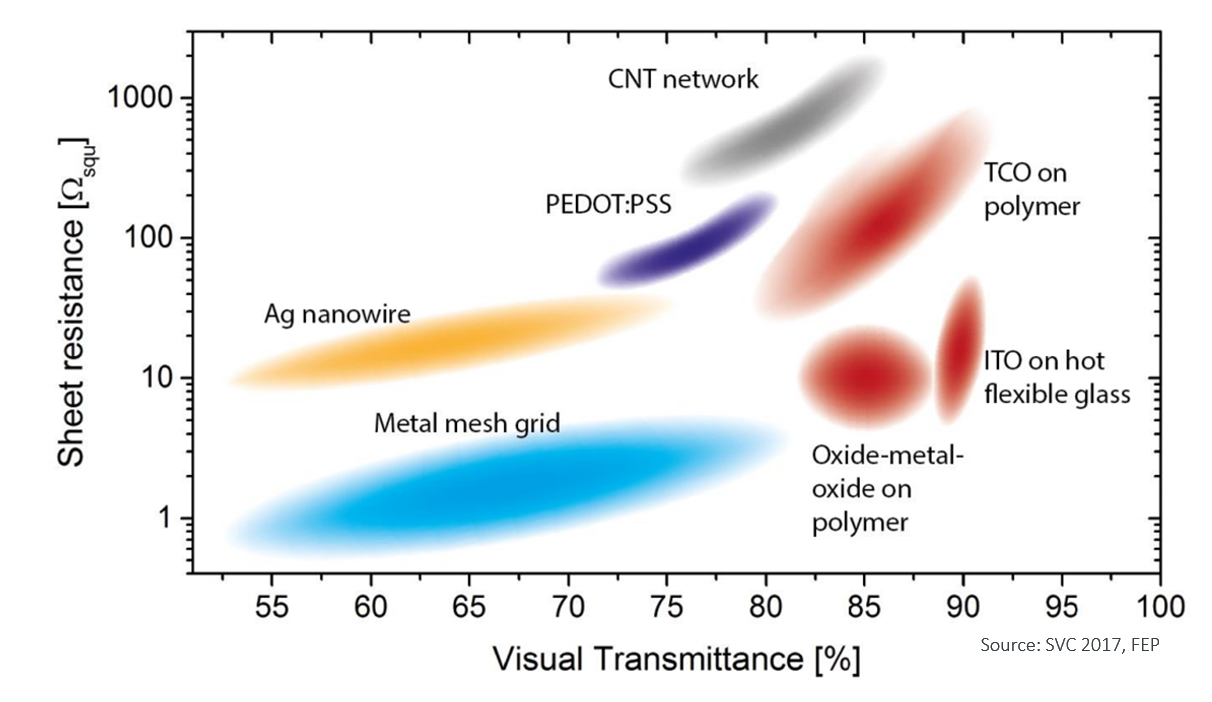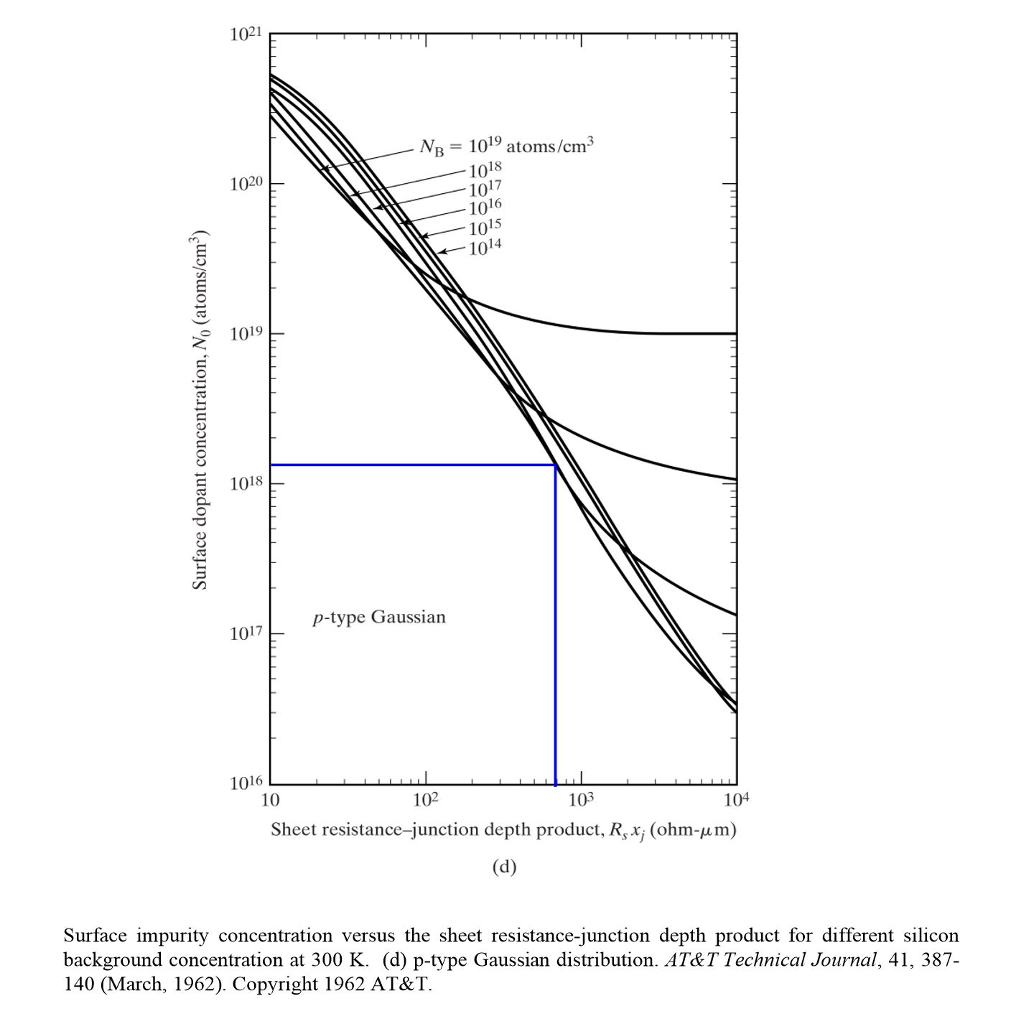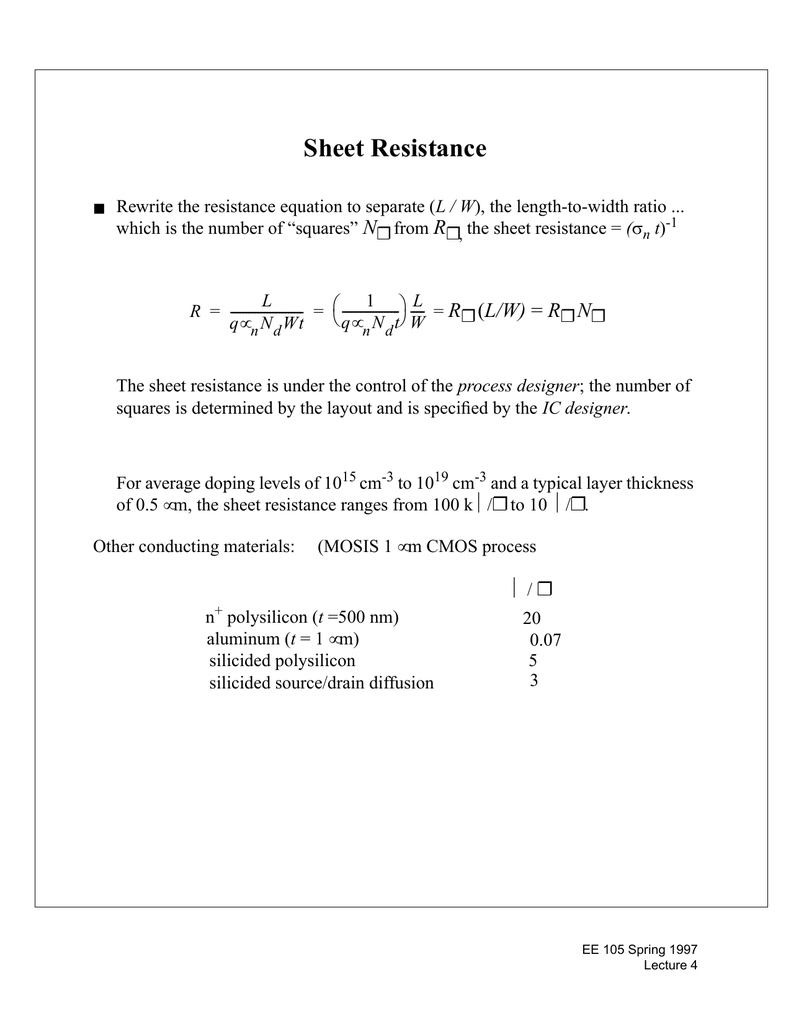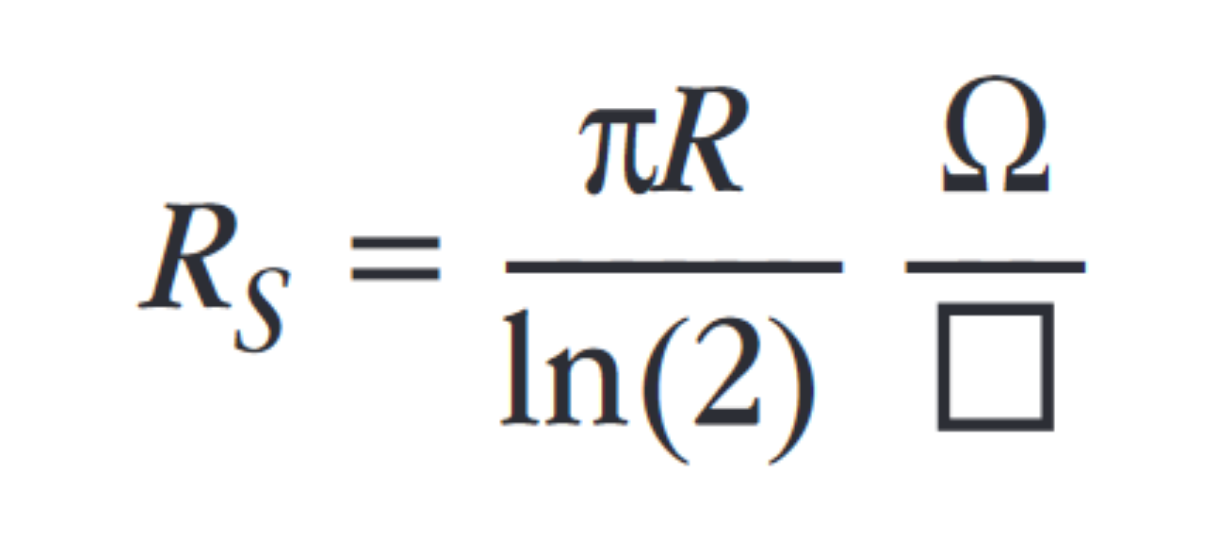Sheet Resistance Equation - Four point probe based instruments use a long established technique to measure the average resistance of a thin layer or sheet by passing. Frequently you do not know t. Current in 1 & out 4 and voltage measured on 2. Which is the number of “squares” n from r , the.
Which is the number of “squares” n from r , the. Current in 1 & out 4 and voltage measured on 2. Four point probe based instruments use a long established technique to measure the average resistance of a thin layer or sheet by passing. Frequently you do not know t.
Which is the number of “squares” n from r , the. Frequently you do not know t. Four point probe based instruments use a long established technique to measure the average resistance of a thin layer or sheet by passing. Current in 1 & out 4 and voltage measured on 2.
Sheet Resistance Measurement and Significance
Frequently you do not know t. Which is the number of “squares” n from r , the. Four point probe based instruments use a long established technique to measure the average resistance of a thin layer or sheet by passing. Current in 1 & out 4 and voltage measured on 2.
SURAGUS Information on Sheet Resistance Measurement
Four point probe based instruments use a long established technique to measure the average resistance of a thin layer or sheet by passing. Frequently you do not know t. Current in 1 & out 4 and voltage measured on 2. Which is the number of “squares” n from r , the.
Power Resistor Voltage Equation Tessshebaylo
Frequently you do not know t. Current in 1 & out 4 and voltage measured on 2. Four point probe based instruments use a long established technique to measure the average resistance of a thin layer or sheet by passing. Which is the number of “squares” n from r , the.
EE143 S06 Lecture Sheet Resistance Rs R p WIt
Which is the number of “squares” n from r , the. Four point probe based instruments use a long established technique to measure the average resistance of a thin layer or sheet by passing. Frequently you do not know t. Current in 1 & out 4 and voltage measured on 2.
SURAGUS Information on Sheet Resistance Measurement
Which is the number of “squares” n from r , the. Current in 1 & out 4 and voltage measured on 2. Four point probe based instruments use a long established technique to measure the average resistance of a thin layer or sheet by passing. Frequently you do not know t.
1. Sheet Resistance In extrinsic material, the sheet
Frequently you do not know t. Which is the number of “squares” n from r , the. Current in 1 & out 4 and voltage measured on 2. Four point probe based instruments use a long established technique to measure the average resistance of a thin layer or sheet by passing.
Sheet Resistance
Frequently you do not know t. Which is the number of “squares” n from r , the. Current in 1 & out 4 and voltage measured on 2. Four point probe based instruments use a long established technique to measure the average resistance of a thin layer or sheet by passing.
(a) Average sheet resistance values of FLG transferred on SiO 2. The
Which is the number of “squares” n from r , the. Frequently you do not know t. Current in 1 & out 4 and voltage measured on 2. Four point probe based instruments use a long established technique to measure the average resistance of a thin layer or sheet by passing.
Performing van der Pauw Sheet Resistance Measurements Using the
Which is the number of “squares” n from r , the. Four point probe based instruments use a long established technique to measure the average resistance of a thin layer or sheet by passing. Current in 1 & out 4 and voltage measured on 2. Frequently you do not know t.
Variation of sheet resistance of NiSiGeC vs different RTA temperatures
Which is the number of “squares” n from r , the. Four point probe based instruments use a long established technique to measure the average resistance of a thin layer or sheet by passing. Current in 1 & out 4 and voltage measured on 2. Frequently you do not know t.
Current In 1 & Out 4 And Voltage Measured On 2.
Frequently you do not know t. Four point probe based instruments use a long established technique to measure the average resistance of a thin layer or sheet by passing. Which is the number of “squares” n from r , the.
